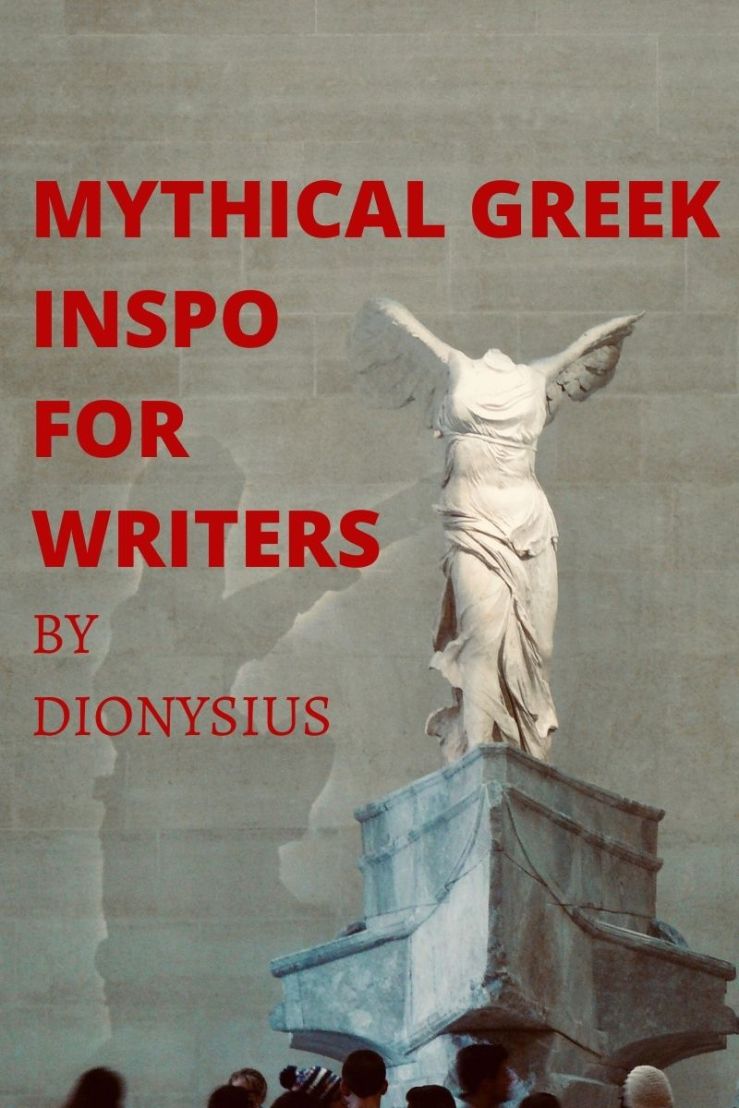
Melodrama, romance, intrigue, mystery, mysticism, pragmatism — oh, wait, not the last one… If you’re looking for inspiration for writing or for reading excitement, check out Greek mythology!
Goddesses and gods, mortals, the blending of both — doesn’t that sound like Stan Lee comicbook territory? Surely he sorted through ancient myths to fashion superheroines and superheroes. Star Trek and Star Wars makers must’ve too.
Admittedly the Greek tales of olden times can be challenging. Every poetically written story is jam-packed with enough intrigue to rival a binge-watch of Days of Lives, a still-running daily soap opera that first aired in 1965 and I once upon a time worked as an extra for… but that’s another story.
South Carolina blogger Dionysius has the same monicker as the multi-cultural god/superhero who oversees everything from wine to fertility and ecstasy to madness. Some argue that Dionysus the god is really Jesus. Our guest, Dionysius, created his New Classical blog “to create a new contemporary literature deeply rooted in classic literary traditions… not to repeat old and dead literary traditions, but to rediscover what is living and vibrant in them today.”
Read on for a peek into how Dionysius sees classic literature…
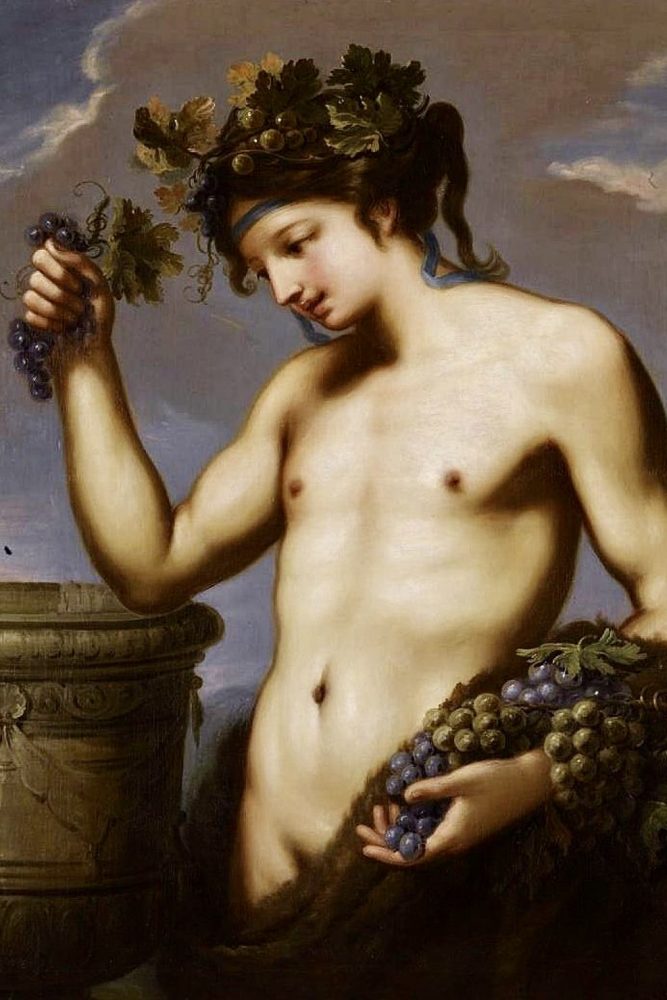 Bacchus by Charles Lucy (English, 1692 – 1767). Courtesy of Wikipedia.
Bacchus by Charles Lucy (English, 1692 – 1767). Courtesy of Wikipedia.A brief summary and analysis of Euripedes’s “The Bacchae” by Dionysius
Summary
Prior to the events of The Bacchae, Dionysus is born from the love affair of Zeus and the mortal Semele. When he is born, his mortal family denies that he is the son of Zeus and refuses to give him worship. Dionysus then leaves Thebes and journeys to the east, where he gathers his cult of female worshippers, the maenads. The Bacchae opens when he returns to Thebes with his maenads to take vengeance on his family. He starts by luring the Theban women, including his aunts, into the forest around Mt. Cithaeron, where they join the maenads. This angers Pentheus, the king and Agave’s (Semele’s sister) son. After Pentheus fails to arrest and subdue Dionysus and the maenads, he is lured into the forest by Dionysus’s offer to look at them. In order to watch the maenads without being noticed, Dionysus tells him that he must dress as a woman. Pentheus complies and imitates the image and mannerisms of the maenads. When he arrives, his body is torn apart by them and by his own mother. Under the spell of Dionysus, she carries his head through Thebes, parading it, thinking that it is the head of a lion she caught during a hunt. When she is made aware of what she has done and whose head she’s been carrying, she falls into grief. The drama ends with Dionysus casting her and the royal family out of Thebes.
Maenads – The Mystery of Woman
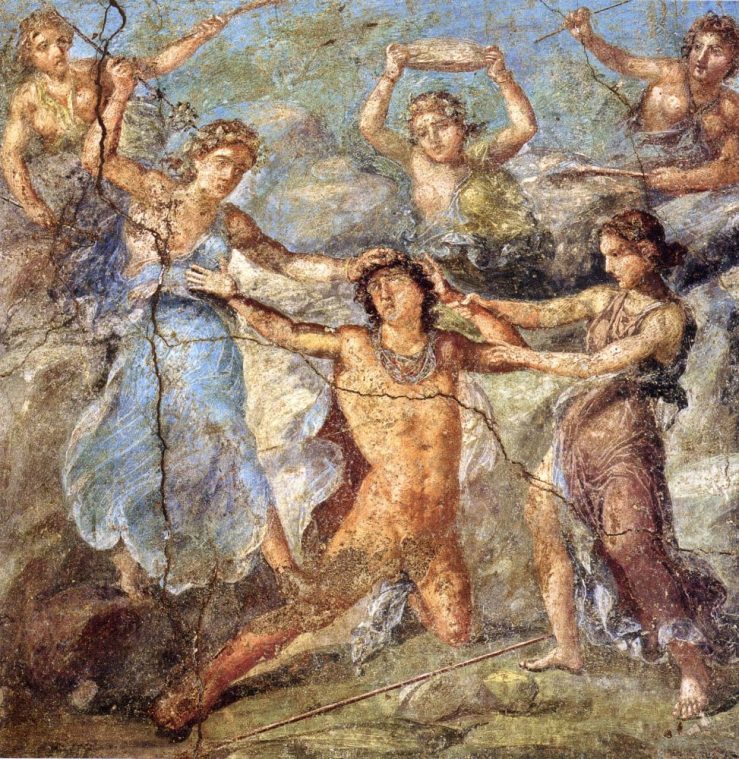 Pentheus being torn by maenads. Roman fresco from the northern wall of the triclinium in the Casa dei Vettii (VI 15,1) in Pompeii. Courtesy of Wiki: Marisa Ranieri Panetta (ed.): Pompeji. Geschichte, Kunst und Leben in der versunkenen Stadt. Belser, Stuttgart 2005, ISBN 3-7630-2266-X, p. 366
Pentheus being torn by maenads. Roman fresco from the northern wall of the triclinium in the Casa dei Vettii (VI 15,1) in Pompeii. Courtesy of Wiki: Marisa Ranieri Panetta (ed.): Pompeji. Geschichte, Kunst und Leben in der versunkenen Stadt. Belser, Stuttgart 2005, ISBN 3-7630-2266-X, p. 366The Bacchae revolves around the mystery of difference. Particularly sexual difference and cultural difference. This is seen clearly by the depiction of Dionysus’s maenads. That they are a cult of women and that Dionysus gathered them in the east is of significance here. In The Bacchae, the feminine, or the idea of Woman, takes on the form of the unknown. Like a woman behind a veil, there is mystery, temptation, and fear associated with the maenads. This is portrayed most clearly by the way Pentheus relates to them. At first, it is with fear, responding to the maenads with force and violence. Then, when it proves that the feminine is impossible to control or subdue, when the captured maenads escape his prison and most definingly when Dionysus(posing as a young mortal priest) himself escapes, Pentheus gives in to temptation at Dionysus’s first request to take him to look at the maenads. He goes as far as to dress as a woman and imitate their dances and appearances.
The temptation that is displayed here is twofold. It is the temptation not only to satiate his desires by seeing the bodies of the women, but also and more fundamentally, to be one of the maenads and experience their enjoyment. While the first temptation fits into a traditional male standpoint of desire, what is significant about the second temptation is that he is not merely taking the maenads as an object of desire, rather his desire is to assume the subjective position of the maenads, of “Woman” and their feminine enjoyment. What is revealed here is that his anger at the maenads was all along based in his own envy of their enjoyment.
Pentheus never understood what the condition for this enjoyment was.
The very condition for the sublime bliss that Pentheus sought after is a primordial unity of being. An overflow of life and nature. It is because the maenads abandon their individual identities and place in the Theban social order, that they can participate in this primordial unity. Their individuality is suspended for the tribal enjoyment of dance, ritual, hunt, and fertility. They participate seamlessly with nature and become a part of the overflowing development of life. Beyond the enjoyment that Pentheus sought, the “[…] Sweet streams of honey dripping,” this condition, is also at the same time the condition for an inhuman terror. This is displayed most clearly when he is torn apart by his own mother and the other maenads.
Unseen Essence
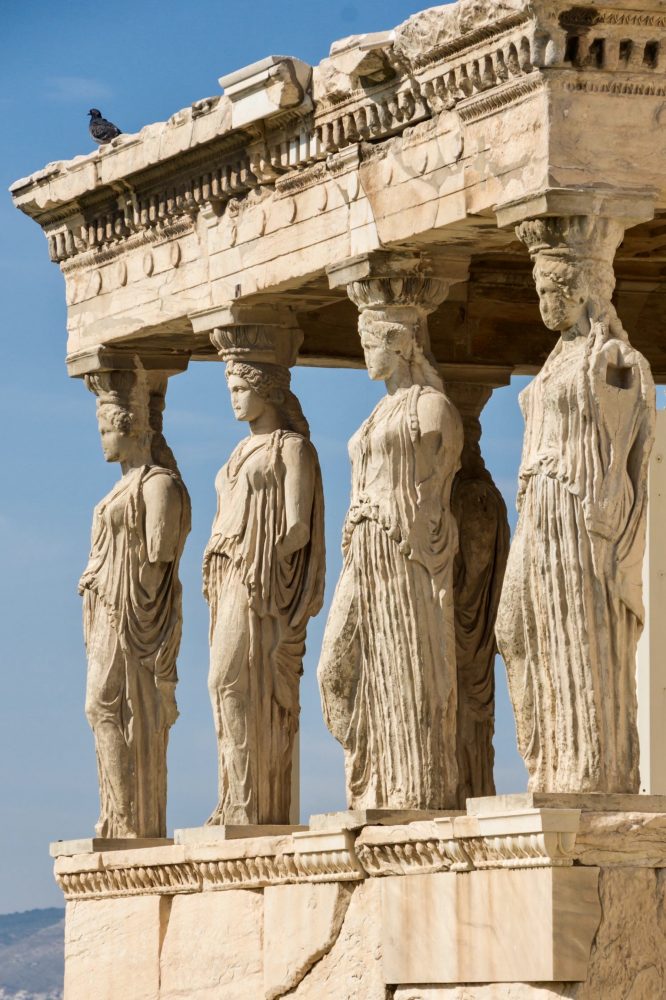 Four Caryatids at Erechtheum Acropolis, Athens: Wikimedia Commons
Four Caryatids at Erechtheum Acropolis, Athens: Wikimedia CommonsWhat must be remembered is that what appears as purely negative in tragedy also has a positive dimension. This is the pinnacle of Greek tragic wisdom. Why does Woman present itself as the apocalypse of man in this tragedy? It is because of an original betrayal of the feminine reality committed by the mortal family of Dionysus. By his entire family when they initially rejected him, and by Pentheus when he returned. This is what causes the breakdown of the Theban social order and the revenge of Woman.
In the same way that Woman is a constitutive element of the reality of sex, including the reality of man. The Dionysian rituals that the maenads take part in, that return to a primordial being and oneness, are constitutive of the Theban social order. It is even the root of the Theban social order. The unconscious reality of Thebes exists as the basis for its conscious and institutional realities.
It is precisely because the rituals of Dionysus exist outside of Thebes, in the rituals of the maenads on Mt. Cithaeron, that it is the base of Theban society. It is precisely because the maenads are all women whose rituals are constitutive of the male Theban social order. And it is precisely because the maenads come from the east that they constitute the western social order of Thebes. Dionysus and his cult are the external essences of Theban society. Essence, unlike appearance, is always unseen.
Dionysus of the Night
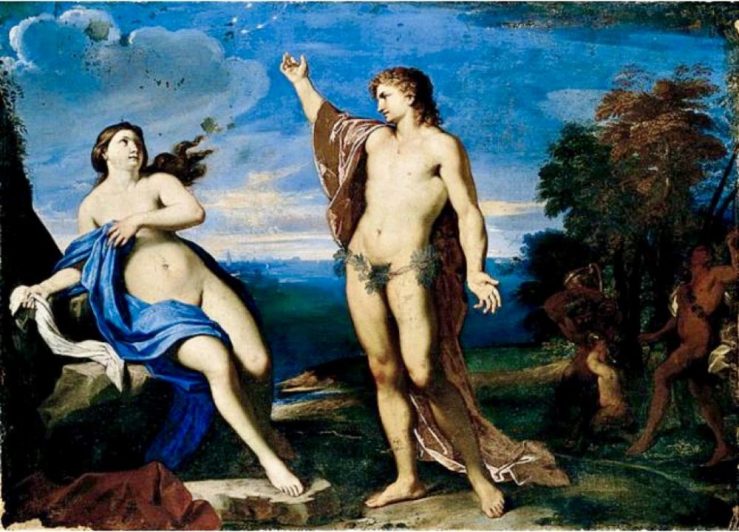 Bacchus and Ariadne by Carlo Maratta: Wikimedia Commons
Bacchus and Ariadne by Carlo Maratta: Wikimedia CommonsThe place that Dionysus dwells in is the contradiction between appearance and essence.
Dionysus embodies this contradiction. He is returning from the east, and yet he was born in the west. He leads a cult of women, and yet he is a man. He is divine, and yet his mother is mortal. This contradiction is like the black of night, where one thousand stars shine. The failure of his mortal family to respect it, and to respect their own essence, is what leads to the breakdown of Thebes.
Visit Dionysius at his New Classical blog, his Twitter page, and his Facebook page.
I’ve always wanted to put on a cape, stretch out my arms, take a running jump, and whoosh! — feel the wind in my face, inhale the fragrance of treetops as I soar high into the clouds. Picture me Super-da-AL or Winged Victory of Samothrace ready for liftoff at the top of the Louver’s entrance.
What superpower would you want?
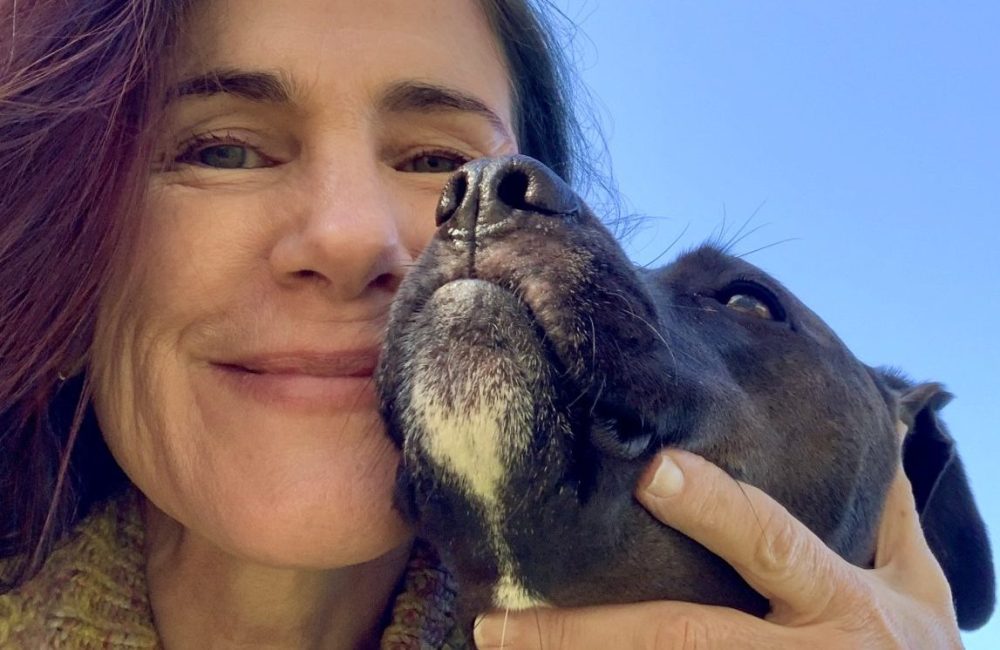

👌👌
LikeLike